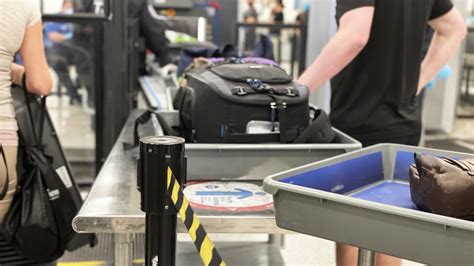
Airline Collapse: Flights Grounded, Travelers Stranded Worldwide
Budget carrier Sky Cana abruptly ceased operations Wednesday, leaving thousands of passengers stranded across the Americas and Europe and prompting widespread travel chaos. The Dominican Republic-based airline, known for its affordable flights connecting various destinations, announced the immediate suspension of all services, citing unspecified “economic difficulties.” The sudden shutdown has triggered a scramble for alternative travel arrangements and raised concerns about passenger refunds and compensation.
Santo Domingo, Dominican Republic – Sky Cana, a budget airline headquartered in the Dominican Republic, has abruptly suspended all operations, leaving thousands of passengers stranded and triggering widespread disruption across its network. The airline, which offered affordable flights connecting various cities in North America, South America, and Europe, announced the immediate cessation of services on Wednesday, citing “economic difficulties” as the primary reason.
The sudden grounding of Sky Cana flights has created a logistical nightmare for travelers, many of whom are now stuck in foreign countries with limited options for returning home. Images circulating on social media show long lines at airports, frustrated passengers seeking assistance, and scenes of general confusion as travelers attempt to navigate the unexpected travel disruptions.
According to a statement released by Sky Cana, the airline is working to assist affected passengers, but details about specific rebooking options and refund policies remain scarce. The airline’s website and customer service lines have been overwhelmed with inquiries, leaving many travelers unable to get the information and support they desperately need.
“We regret to inform our passengers that due to unforeseen economic difficulties, Sky Cana has been forced to suspend all operations effective immediately,” the airline stated in its announcement. “We understand the significant inconvenience this will cause, and we are committed to working with affected passengers to find alternative travel arrangements where possible.”
However, the lack of clear communication and concrete solutions has fueled anger and frustration among stranded passengers, many of whom have taken to social media to voice their complaints and share their experiences.
“I’m stuck in Miami with no way to get back home to Santo Domingo,” said Maria Rodriguez, a Sky Cana passenger who was scheduled to fly back on Wednesday. “The airline is not answering calls, and the airport staff can’t provide any information. This is a complete disaster.”
The collapse of Sky Cana highlights the challenges faced by budget airlines in a highly competitive and volatile industry. Rising fuel costs, fluctuating currency exchange rates, and increased competition from larger carriers can all contribute to financial instability, particularly for smaller airlines with limited resources.
The Dominican Republic’s Civil Aviation Institute (IDAC) has stated it is closely monitoring the situation and working to ensure that Sky Cana fulfills its obligations to affected passengers. The IDAC has also pledged to investigate the circumstances surrounding the airline’s collapse and to take appropriate action to protect the interests of consumers.
Impact on Passengers
The immediate impact of Sky Cana’s collapse is being felt most acutely by the thousands of passengers who are currently stranded away from home. These travelers face a range of challenges, including:
-
Finding alternative flights: With Sky Cana flights canceled, passengers must find alternative airlines with available seats. This can be difficult and expensive, especially during peak travel season.
-
Paying for unexpected expenses: Stranded passengers are incurring additional expenses for accommodation, meals, and transportation. Many travelers are struggling to afford these unexpected costs.
-
Dealing with uncertainty and stress: The sudden disruption to travel plans has caused significant stress and anxiety for passengers, many of whom are unsure when they will be able to return home.
-
Navigating complex refund procedures: Passengers who purchased Sky Cana tickets are now facing the prospect of filing claims for refunds. The process for obtaining refunds can be lengthy and complicated, and there is no guarantee that passengers will receive full reimbursement.
Industry Analysts Weigh In
Industry analysts suggest that several factors may have contributed to Sky Cana’s financial difficulties, including:
-
Aggressive pricing strategy: Sky Cana’s focus on offering low fares may have made it difficult for the airline to generate sufficient revenue to cover its operating costs.
-
Limited route network: The airline’s reliance on a relatively small number of routes may have made it vulnerable to fluctuations in demand and competition from other airlines.
-
Rising fuel costs: The recent surge in fuel prices has put significant pressure on airlines, particularly those with older, less fuel-efficient aircraft.
-
Economic instability in the region: Economic challenges in some of the countries served by Sky Cana may have reduced demand for air travel.
“Budget airlines operate on very thin margins, and any significant disruption can quickly lead to financial problems,” said John Strickland, an aviation consultant at JLS Consulting. “Sky Cana’s collapse is a reminder of the risks involved in this sector of the industry.”
The broader implications of Sky Cana’s demise extend beyond the immediate disruption to passengers. The airline’s collapse could have a ripple effect on the Dominican Republic’s tourism industry, potentially deterring visitors and damaging the country’s reputation as a travel destination.
Government Response
The Dominican Republic government has pledged to provide assistance to stranded Sky Cana passengers and to investigate the circumstances surrounding the airline’s collapse.
“We are committed to ensuring that affected passengers receive the support they need,” said a spokesperson for the Ministry of Tourism. “We are working with other airlines and travel agencies to find alternative travel arrangements for stranded passengers, and we are also exploring options for providing financial assistance to those who are facing hardship.”
The government has also announced plans to review the regulatory framework for airlines operating in the Dominican Republic to prevent similar incidents from happening in the future.
Legal Experts Weigh In
Legal experts say that Sky Cana passengers may have several legal options for seeking compensation, including:
-
Filing a claim with the airline: Passengers can file a claim with Sky Cana for a refund of their ticket price and reimbursement of any expenses incurred as a result of the flight cancellations. However, the likelihood of receiving full compensation from the airline is uncertain, given its financial difficulties.
-
Filing a claim with their travel insurance provider: Passengers who purchased travel insurance may be able to claim compensation for flight cancellations and other travel disruptions. However, the terms and conditions of travel insurance policies vary, and passengers should carefully review their policies to determine what coverage is available.
-
Filing a claim with their credit card company: Passengers who paid for their Sky Cana tickets with a credit card may be able to dispute the charges and seek a refund from their credit card company.
-
Pursuing legal action against the airline: Passengers may also have the option of pursuing legal action against Sky Cana to recover their losses. However, legal action can be costly and time-consuming, and there is no guarantee of success.
The collapse of Sky Cana serves as a cautionary tale for travelers who are considering booking flights with budget airlines. While low fares can be attractive, it is important to be aware of the risks involved and to take steps to protect oneself in case of unexpected disruptions.
Recommendations for Travelers
To minimize the risk of being affected by airline collapses or other travel disruptions, travelers should consider the following recommendations:
-
Purchase travel insurance: Travel insurance can provide coverage for flight cancellations, lost luggage, and other travel-related expenses.
-
Book flights with reputable airlines: Choose airlines with a strong financial track record and a history of reliable service.
-
Pay with a credit card: Using a credit card to pay for flights provides additional protection in case of disputes or bankruptcies.
-
Monitor airline news and updates: Stay informed about the financial health of airlines you are considering booking with.
-
Be prepared for unexpected disruptions: Have a backup plan in case your flight is canceled or delayed.
The Sky Cana situation is ongoing, and further developments are expected in the coming days and weeks. Stranded passengers are urged to remain patient and to continue seeking assistance from the airline, travel agencies, and government authorities.
As of Thursday, efforts to rebook passengers continued, though many faced limited options and higher prices. The long-term impact on the regional airline industry, particularly in the Dominican Republic, remains to be seen. The incident underscores the precarious nature of the budget airline model and the importance of consumer protection in the face of airline failures.
Updated Information:
Several international airlines have stepped in to offer discounted fares for stranded Sky Cana passengers, though availability remains limited. The Dominican Republic government has established a hotline to provide assistance and information to affected travelers. Consumer protection agencies are advising passengers to document all expenses related to the flight cancellations to support their refund claims. Legal experts are also warning of potential scams targeting stranded passengers, urging them to be cautious of unsolicited offers of assistance. The investigation into the causes of Sky Cana’s collapse is ongoing, with a focus on the airline’s financial management and regulatory oversight. The incident has prompted calls for greater transparency and accountability in the budget airline sector.
The domino effect of the Sky Cana shutdown is also being felt by associated businesses, including ground handling services, catering companies, and airport vendors. The economic impact on these related industries is expected to be significant, particularly in the Dominican Republic, where Sky Cana was a major employer. The long-term consequences of the airline’s collapse are still unfolding, but it is clear that the incident will have a lasting impact on the region’s aviation industry and the traveling public. Passengers are encouraged to continue monitoring official channels for updates and to seek professional advice regarding their legal rights and options.
Sky Cana’s abrupt halt to operations has not only left thousands of passengers in disarray but also cast a shadow on the future of budget airlines in the region. The incident serves as a stark reminder of the financial vulnerabilities that can plague low-cost carriers, particularly in the face of rising operational costs and fierce competition. Industry analysts are now closely scrutinizing other regional airlines to assess their financial stability and identify potential risks. The focus is on factors such as cash reserves, debt levels, and route profitability. The Sky Cana debacle has also raised questions about the adequacy of regulatory oversight in the aviation sector. Critics argue that authorities should be more proactive in monitoring the financial health of airlines and enforcing consumer protection laws. The incident has highlighted the need for greater transparency and accountability in the budget airline industry.
In the wake of the Sky Cana collapse, consumer advocacy groups are urging travelers to exercise caution when booking flights with low-cost carriers. They recommend that passengers thoroughly research airlines before making reservations, paying close attention to their financial history and customer reviews. They also advise travelers to purchase comprehensive travel insurance that covers flight cancellations and other unforeseen disruptions. In addition, consumer groups are calling on governments to strengthen consumer protection laws and to provide greater assistance to passengers who are stranded due to airline failures. The Sky Cana incident has underscored the importance of consumer awareness and vigilance in the aviation sector.
The Sky Cana situation also highlights the potential for cascading effects on the broader tourism industry. The airline’s collapse could deter travelers from visiting the Dominican Republic and other destinations served by the carrier. This could lead to a decline in tourism revenue and job losses in related sectors. The long-term impact on the tourism industry will depend on how quickly the Dominican Republic government and other stakeholders can restore confidence in the region’s air travel system. The government has announced plans to launch a marketing campaign to promote tourism and to reassure travelers that the country is a safe and reliable destination. The success of these efforts will be crucial to mitigating the economic fallout from the Sky Cana collapse.
The Sky Cana episode also has implications for the global aviation industry. It serves as a reminder of the inherent risks in the airline business and the importance of sound financial management. Airlines around the world are facing a number of challenges, including rising fuel costs, increased competition, and economic uncertainty. These challenges are putting pressure on airlines’ profit margins and making it more difficult for them to remain financially viable. The Sky Cana collapse underscores the need for airlines to adopt sustainable business models and to prioritize financial stability. It also highlights the importance of effective regulatory oversight to ensure that airlines are operating safely and responsibly.
The fallout from Sky Cana’s shutdown continues to evolve, with passengers still grappling with the aftermath and industry experts analyzing the long-term implications. The incident serves as a stark reminder of the interconnectedness of the global aviation ecosystem and the potential for disruptions to ripple across borders. As travelers navigate the complexities of rebooking flights and seeking compensation, the focus is increasingly shifting towards preventing similar incidents in the future. This includes strengthening regulatory frameworks, enhancing consumer protection measures, and promoting greater financial stability within the airline industry. The Sky Cana collapse is a cautionary tale that underscores the importance of vigilance, preparedness, and responsible decision-making in the ever-changing world of air travel.
The impact of Sky Cana’s collapse extends beyond the immediate financial losses and travel disruptions. The incident has also damaged the reputation of the Dominican Republic as a reliable tourist destination. The government is now facing the challenge of restoring confidence in the country’s aviation industry and reassuring travelers that it is safe to visit. This will require a multi-faceted approach, including strengthening regulatory oversight, improving airport infrastructure, and promoting transparency and accountability within the airline sector. The government must also work to address the concerns of stranded passengers and to ensure that they receive the compensation they are entitled to. The long-term success of the Dominican Republic’s tourism industry will depend on its ability to learn from the Sky Cana experience and to take proactive steps to prevent similar incidents from happening in the future.
Frequently Asked Questions (FAQ)
-
Why did Sky Cana suddenly cease operations?
- According to the airline, Sky Cana suspended all operations due to “unforeseen economic difficulties.” The airline has not provided specific details about the nature of these difficulties.
-
What should I do if I had a Sky Cana flight booked?
- If you had a Sky Cana flight booked, you should first contact the airline directly, though their customer service lines are currently overwhelmed. You should also explore options for filing a claim with your travel insurance provider, credit card company, or pursuing legal action against the airline. Document all expenses incurred as a result of the flight cancellation. The Dominican Republic government has established a hotline to provide assistance and information to affected travelers.
-
Will I get a refund for my Sky Cana ticket?
- The likelihood of receiving a full refund from Sky Cana is uncertain, given its financial difficulties. You can file a claim with the airline, but you may also need to explore alternative options such as filing a claim with your travel insurance provider or credit card company.
-
Is the Dominican Republic government providing assistance to stranded Sky Cana passengers?
- Yes, the Dominican Republic government has pledged to provide assistance to stranded Sky Cana passengers and has established a hotline to provide information and support. They are also working with other airlines and travel agencies to find alternative travel arrangements for stranded passengers.
-
What are the broader implications of Sky Cana’s collapse for the airline industry?
- Sky Cana’s collapse highlights the challenges faced by budget airlines in a highly competitive and volatile industry. It serves as a reminder of the risks involved in this sector of the industry and the importance of consumer protection in the face of airline failures. The incident could also have a ripple effect on the Dominican Republic’s tourism industry.
Deep Dive and Extended Context
The collapse of Sky Cana exposes the fragility inherent in the budget airline model, a system predicated on maximizing efficiency and minimizing costs to offer competitive fares. While appealing to travelers seeking affordable options, this business strategy leaves airlines vulnerable to economic shocks and unforeseen events. Several interlocking factors likely contributed to Sky Cana’s downfall, creating a perfect storm that ultimately led to its demise.
Firstly, the aggressive pricing strategy, a cornerstone of the budget airline approach, may have undermined Sky Cana’s long-term financial stability. Offering significantly lower fares than established carriers often translates to razor-thin profit margins. This leaves little room for error and makes airlines exceptionally susceptible to fluctuating fuel prices, currency exchange rate volatility, and unexpected maintenance costs. In essence, the pursuit of market share through deep discounts may have come at the expense of sustainable profitability.
Secondly, Sky Cana’s relatively limited route network magnified its vulnerability to market fluctuations. Unlike larger airlines with extensive global networks, Sky Cana’s reliance on a smaller number of routes meant that a downturn in demand on even one or two key routes could have a significant impact on its overall revenue. Economic instability in the regions it served, seasonal variations in tourism, or increased competition from other airlines on those specific routes could have all contributed to a decline in passenger numbers and a corresponding decrease in revenue. Diversification of routes is often a key strategy for mitigating risk in the airline industry, and Sky Cana’s limited network may have exacerbated its financial challenges.
Thirdly, the surge in fuel prices in recent years has placed immense pressure on airlines worldwide, and Sky Cana was likely no exception. Fuel is a major operating expense for airlines, often accounting for a significant percentage of their total costs. When fuel prices rise sharply, airlines have limited options for absorbing these costs. They can either increase fares, which may deter price-sensitive customers, or absorb the costs themselves, which can erode profitability. Budget airlines, with their already tight margins, are particularly vulnerable to fuel price fluctuations.
Fourthly, economic instability in the Dominican Republic and other countries served by Sky Cana may have further weakened demand for air travel. Economic downturns often lead to decreased discretionary spending, and travel is often one of the first areas to be cut back. If the economies of the regions Sky Cana served were experiencing difficulties, this could have translated to fewer passengers and reduced revenue.
Fifthly, increased competition from larger, more established airlines may have also played a role in Sky Cana’s demise. Major carriers often have the resources to offer competitive fares on select routes, even if it means operating at a loss in the short term. This can make it difficult for smaller budget airlines to compete, particularly if they lack the brand recognition and customer loyalty of larger airlines. Predatory pricing practices by larger carriers can further squeeze the margins of smaller competitors, making it difficult for them to survive.
Furthermore, inadequate regulatory oversight may have contributed to the airline’s collapse. Strong regulatory bodies play a crucial role in monitoring the financial health of airlines and ensuring that they are operating in a safe and responsible manner. If regulatory oversight was lacking, Sky Cana may have been able to operate with unsustainable business practices for a longer period of time, ultimately leading to a more abrupt and disruptive collapse. Transparency and accountability are essential for maintaining the integrity of the airline industry and protecting the interests of consumers.
The consequences of Sky Cana’s collapse extend far beyond the immediate disruption to passengers. The economic impact on the Dominican Republic’s tourism industry could be significant, as the airline was a major player in connecting the country to international markets. A decline in tourism could lead to job losses in related sectors, such as hotels, restaurants, and transportation. The damage to the country’s reputation as a reliable tourist destination could also have long-term consequences.
In the wake of the Sky Cana collapse, several measures can be taken to prevent similar incidents from happening in the future. Firstly, regulatory oversight of airlines should be strengthened to ensure that they are operating with sound financial practices. This includes rigorous monitoring of their financial health, adherence to safety standards, and compliance with consumer protection laws. Secondly, airlines should be encouraged to adopt more sustainable business models that prioritize long-term profitability over short-term gains. This may involve diversifying their route networks, investing in fuel-efficient aircraft, and implementing robust risk management strategies. Thirdly, consumer protection laws should be strengthened to provide greater protection to passengers who are affected by airline failures. This includes ensuring that passengers have access to clear and transparent information about their rights and options, and providing them with effective mechanisms for seeking compensation.
The Sky Cana collapse serves as a stark reminder of the risks inherent in the budget airline model and the importance of responsible financial management, strong regulatory oversight, and robust consumer protection. It is a cautionary tale that should prompt airlines, regulators, and consumers to take steps to prevent similar incidents from happening in the future. The long-term health and stability of the aviation industry depend on a commitment to safety, sustainability, and consumer protection. Only through a collective effort can the industry ensure that passengers are able to travel with confidence and that airlines are able to operate in a financially viable and responsible manner. The aftermath of Sky Cana serves as a catalyst for critical reforms and a renewed focus on building a more resilient and passenger-centric aviation ecosystem. The lessons learned must be translated into concrete actions to safeguard the interests of travelers and ensure the long-term sustainability of the airline industry.









